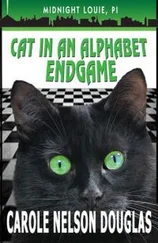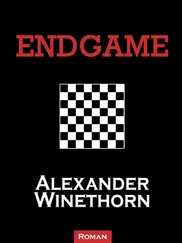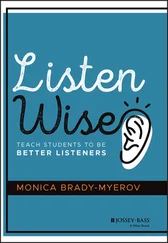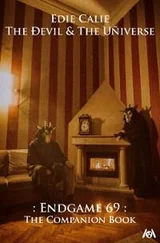Within a few years after Bobby’s dispute with the UBS, thousands of American tax evaders, most millionaires like Bobby, came forth to avoid prosecution, and others who continued to hide their money at UBS were being pursued and arrested for income tax evasion. UBS wasn’t conspiring against Bobby: They just wanted to get rid of one of their most public and foolish clients.
Since Iceland’s interest rate at that time was higher than Switzerland’s, it’s curious why Bobby didn’t want the transfer. Some have speculated that he was somehow prescient or had insider or special knowledge that the Icelandic banks would fail (as they did in 2008, in the country’s economic collapse). A more likely explanation is that he really didn’t see himself staying in Iceland forever. Perhaps he was hoping to gain citizenship in yet another country when the time was right.

The bank battle was an unpleasant interlude, but it didn’t interrupt what was becoming the key portion of most of Bobby’s days: reading. As the study of chess had been compulsive when he was a boy, so now his mind was captivated by deep, serious study of history, philosophy, and other topics. Prowling the aisles at Bókin, he was sometimes brought up short by the absence of a book he wanted, in which case he’d have the store order it for him. He was continually buying books, usually two or three a day, keeping most, discarding a few, and giving others to friends.
In ambience, although not in content, Bókin reminded him of Dr. Albrecht Buschke’s chess bookstore in Greenwich Village, the one he’d visited as a child and as a young man. The books at Buschke’s were slapdashedly scattered, but the disarray was nothing compared to the confusion of Bókin. Bobby seriously asked Bragi to hire him to confront and organize “the pile,” because he thought there had to be books there, hidden deep within, that would be of interest to him, and also because he just couldn’t stand the mess. Finally, he said he’d work for nothing. “But where would we put them?” was Bragi’s refusal.
Bobby’s aisle was a totally secure spot. With his back to the wall, gangster style, he could see anyone coming down the long, narrow corridor, and if he sensed that the person was an autograph seeker—or worse, a reporter—he would either scowl or feign total absorption in what he was reading and not respond if spoken to. Those ploys proved as effective as hanging a Do Not Disturb sign around his neck.
Often, if he noticed that the time was nearing six o’clock, he’d dash off to Yggdrasil, a health food store—the name refers to the mythological Tree of Life—deliberately arriving there just one minute before closing time. He’d then shop at his leisure, much to the discontent of the shop workers who wanted to quit for the day. By arriving as late as he did, he avoided the stares of other shoppers.
Checking out at the counter one day, he noticed a brand of candy bars called Rapunzel; there were two types available, chocolate-covered halvah and coconut. “Does this come from Israel?” he asked suspiciously. When told that the candy came from Germany—“You know, the fairy tale and the Brothers Grimm,” the clerk said—Bobby was reassured and bought a few bars, his anti-Semitic sensibilities appeased.
Although he was often recognized in the street, few Icelanders intruded on his privacy. Foreigners weren’t always so considerate, though, and he usually lashed out at anyone audacious enough to address him. There was one exception, noteworthy because it was so abnormal for him. An American tourist—a chess player—approached Bobby one day and invited him to dinner. After checking the man’s passport to make sure he was who he said, and informally interrogating him to make sure he wasn’t a reporter, Bobby atypically agreed to dine with the stranger. They went to one of Reykjavik’s most expensive and elegant restaurants and were said to have a long conversation, mainly about politics.
Months passed placidly until Bobby had been living in Iceland for about a year. When Helgi Olafsson, a grandmaster, asked him how he liked living in the country, Bobby answered in his typical Calvin Coolidge style: “Good.” But his sanctuary at Bókin began to become known, and stories appeared in the press about his going there, together with interviews of the store’s proprietor, Bragi. A Russian television crew showed up to try to interview Fischer, and he fled. Eventually he tired of the reporters waiting to ambush him outside the bookstore, and he changed his routine. He began to frequent the Reykjavik Public Library, only a few blocks farther from where he lived. The library became the focal point of his life.
On the building’s fifth floor, within a few feet of the tall cases of books on history and politics, he’d tuck himself away for hours at a table beside a window. In contrast to the unattractive side street outside the window of Bókin, the library’s window provided a view of the fishing trawlers docked in the bay, and the mountains just beyond the water. For all of the days and months that Bobby went to the library, his new routine never leaked to the press. All of the librarians knew who Bobby was, but they never revealed his presence.
Right down the block from the library was an inexpensive Thai restaurant, Krua Thai, where Bobby began dining at least two or three times a week. Not on the normal tourist route, it was clean and cozy, with dark-painted walls, a giant silver-sequined elephant and other decorations from Thailand, and dim lighting, which his eyes preferred. Bobby liked the fish dishes with vegetables and rice. He also liked the owner, an intelligent, vivacious Thai woman named Sonja, and insisted that only she wait on him. “Where’s the lady?” he’d demand as soon as he entered, knowing that she’d bring his favorite food and drink without his needing to order. There was only one item he absolutely refused to partake of: Icelandic bottled water. He said it made him sick. He drank only beer or tea. After he’d been going to Krua Thai for about a year, Sonja gently asked if he’d pose for a photo with her. He refused.
Bobby told no one, not even his closest friends, about Krua Thai, since, although he was lonely, he often preferred to dine alone; like Thomas Jefferson in the White House, he enjoyed his own company, the opportunity to read or to contemplate books, ideas, and memories. Paradoxically, it was when he was with others that he felt an uncomfortable solitude.
Bobby was conflicted about his intense desire for privacy, and his need—from his earliest days of childhood—for attention. He demanded constant reassurances of adoration, or at least notice. One day in downtown Reykjavik, he was asked for directions by some American tourists. “Gee, they didn’t know who I was,” he said disappointedly to Einarsson. “And they were Americans !” Another time, just to give himself a change from the city, he took a bus alone to a small fishing village named Grindavík near the famous Blue Lagoon, an outdoor thermal pool that he liked to bathe in. He stayed at an inn there for a few days. The waitress in the restaurant was friendly, especially since he was one of the only customers. “Are you famous?” she asked, possibly sensing Bobby’s fame, or maybe because she’d seen his photo in Morgunbladid or some other periodical. “Perhaps,” Bobby answered coyly. “What are you famous for?” she asked. More coyness: “A board game.” The girl thought for a moment and then it came to her: “You’re Mr. Bingo!” Bobby was mortified that she couldn’t identify him.
Bobby still ate at Anestu Grösum, but he established a new regimen of taking a long walk around the City Pond, watching children feed ducks, geese, and the lovely whooping swans entwining their necks, and finally working his way to the library. Typically, his walks had no destination: To him they were akin to meditation—a chance to think without thinking—and he rambled about even during the bitterly cold winters. Most of the parks had benches, and if the weather was pleasant, he’d sit, read, think, and just be , an activity not atypical of many men entering late life.
Читать дальше
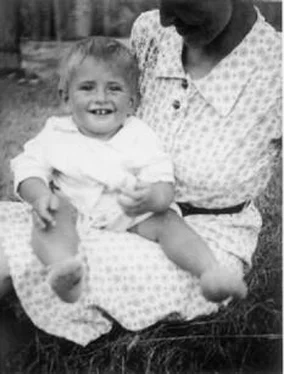


![Антон Текшин - EndGame [СИ]](/books/394477/anton-tekshin-endgame-si-thumb.webp)
